SGGP
In recent years, medical units in Ho Chi Minh City have promoted the application of information technology (IT) in management, operation and patient service. Many digital transformation solutions have been applied, contributing to significantly improving the city's healthcare system.
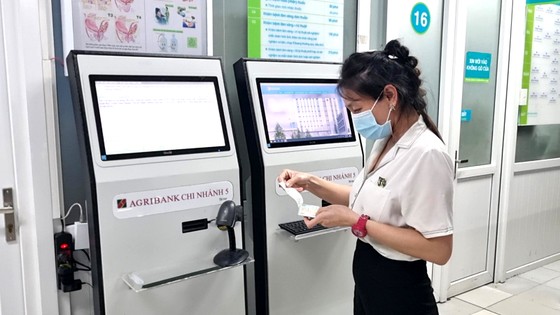 |
| People register for medical examination and treatment, look up health insurance information using citizen identification cards at Binh Dan Hospital |
Technology - a powerful assistant
Every day, Binh Dan Hospital receives more than 2,000 outpatients and nearly 900 inpatients. Previously, nurses had to handwrite 5 paper forms after taking care of patients, but now the hospital has developed the content on 1 electronic form, helping to shorten the recording time. Parameters such as pulse, temperature, and blood pressure of the patient are drawn automatically as soon as the data is entered. With just a tablet, nurses can quickly access all patient records and treatment orders from doctors without having to carry paper records when taking care of patients at the bedside as before.
According to the Board of Directors of Binh Dan Hospital, since the beginning of 2022, the hospital has prioritized digital transformation, aiming to complete electronic medical records. The entire source code was implemented and completed by the hospital's IT engineers according to the actual requirements in examination and treatment activities. Up to now, almost all modules in the medical records have been completed and operated smoothly, meeting the requirements according to regulations on electronic medical records. In addition, the hospital applies artificial intelligence to guide people about information such as examination schedules, costs, things to note when visiting, etc.
Similarly, Thong Nhat Hospital has introduced smart cards to serve patients since 2020, bringing great efficiency to both patients and doctors. When coming to the hospital for examination, people are given a smart medical examination card to register for medical examination and treatment online; choose doctors and clinics as requested; pay hospital fees and services right at kiosks located at the entrances.
Dr. Nguyen The Han, Head of the Department of On-Demand Medical Examination, Thong Nhat Hospital, said that since the smart medical examination card was put into use, patients' waiting time has been reduced. Meanwhile, medical staff have also reduced work pressure. Integrating health insurance cards into chip-embedded citizen identification cards (implemented by the Ho Chi Minh City health sector in coordination with the Social Insurance agency) also helps people not need to bring their health insurance cards when going for medical examination and treatment; medical staff do not waste time manipulating and entering information.
Just a click away
Associate Professor, Dr. Tang Chi Thuong, Director of the Ho Chi Minh City Department of Health, said that in the past, when medical examination and treatment facilities changed information related to their operating licenses or changed their practicing personnel, they had to send paper documents to the Department of Health for review. Now, they only need to update the changed information online. The information will be processed within 5 working days and will be made public on the industry's search portal at https://thongtin.medinet.org.vn.
This is to facilitate medical examination and treatment facilities to carry out procedures for registering to practice in accordance with the provisions of law; to publicly and transparently provide information to the people; and for the Social Insurance agency to monitor, review and determine the legal practice process at medical examination and treatment facilities in the settlement of health insurance.
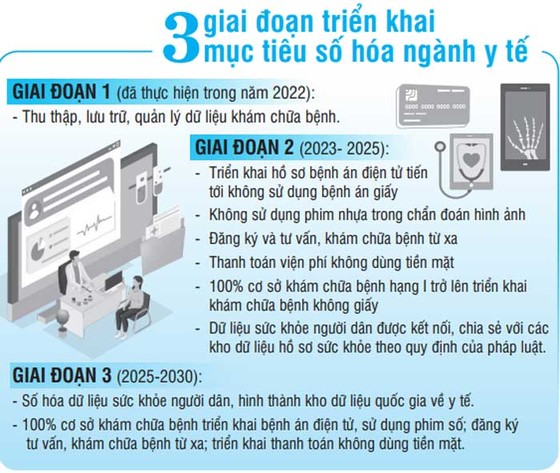 |
Graphics: NGOC TRAM |
In addition, the Ho Chi Minh City Department of Health also carried out digital transformation in the appraisal and approval of technical lists, helping to shorten many stages, save travel time for experts, and save paper and ink because there is no need to photocopy many copies and send them to experts for appraisal.
The creation of big data on the technical catalogue of medical examination and treatment facilities is an important foundation for state management agencies to easily monitor and inspect compliance with approved technical catalogues; at the same time, it helps to publicize and make information transparent so that people know, monitor and promptly report on facilities that perform unapproved techniques. To date, nearly 50,000 techniques of all public and non-public hospitals under the management of the Ho Chi Minh City Department of Health have been digitized and people can easily look them up on the industry's electronic information portal.
According to Associate Professor, Dr. Tang Chi Thuong, the city's health sector has made recommendations to promote digital transformation activities towards building smart hospitals. "Digital transformation is considered one of the key activities in the annual operation plan of the hospital, directly directed by the hospital director. At the same time, it is necessary to disseminate and thoroughly understand to each officer and employee in the hospital to have a correct understanding of the meaning and importance of digital transformation activities; prioritize resource allocation to recruit additional human resources for the IT department, pay attention to and create favorable conditions for IT specialists to study and improve their qualifications," emphasized Associate Professor, Dr. Tang Chi Thuong.
Mr. NGUYEN TRUONG NAM, Deputy Director of the Department of Information Technology (Ministry of Health):
Forming specialized data warehouse
The effectiveness of digital transformation in the healthcare sector is clearly demonstrated for hospitals, patients and the healthcare sector. Digital transformation, especially hospital digitalization, will form specialized data warehouses, medical examination and treatment data warehouses, and electronic health record data warehouses. These data warehouses are interconnected between medical facilities nationwide, helping to support and improve the quality of healthcare services and medical examination and treatment for people. From medical data warehouses, large data systems of the healthcare sector will be formed, thereby applying modern digital technology (such as big data technology, artificial intelligence, data analysis, to serve scientific research, disease model analysis, and forecasting.
Dr. NGUYEN ANH DUNG, Deputy Director of Ho Chi Minh City Department of Health:
Not invested synchronously and properly
There are still many difficulties and challenges in implementing digital transformation activities for medical facilities in Ho Chi Minh City, such as: human resources and IT infrastructure at units are still lacking and weak due to lack of synchronous and proper investment; internal regulations and processes have not been changed in time to suit reality; digital transformation thinking of staff and employees has been improved, but digital capacity has not met the requirements of innovation in the medical field... That leads to the effectiveness in synchronously implementing digital transformation at medical facilities being unclear, not as expected by managers. This year, the city's health sector will launch two key activities of important significance in the sector's digital transformation: building electronic health records for city residents, and building a shared data warehouse for the health sector.
Written by NGUYEN QUOC - THANH SON
Source








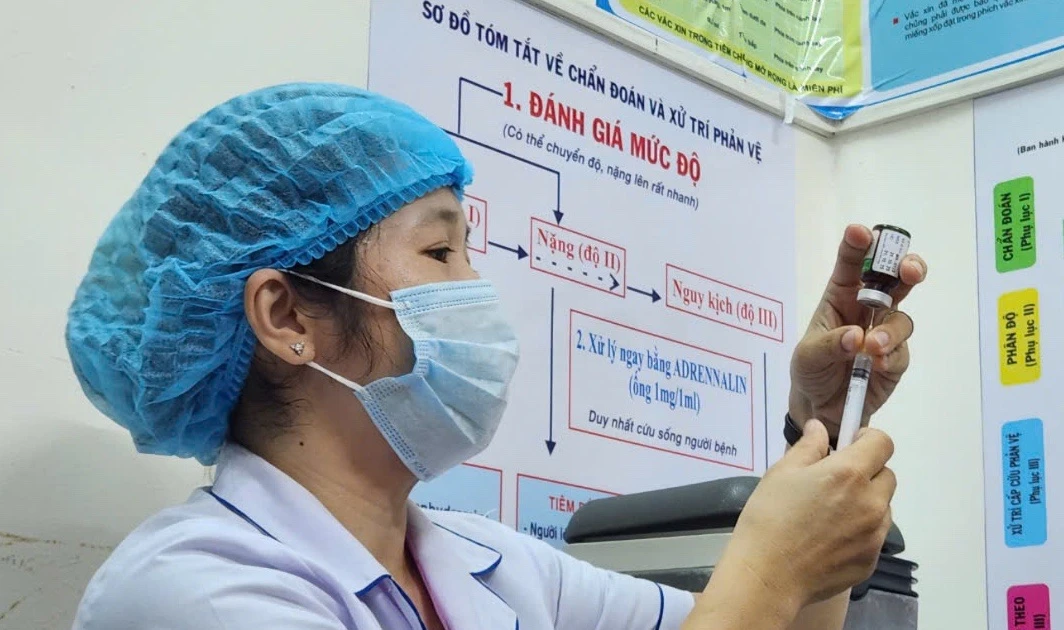



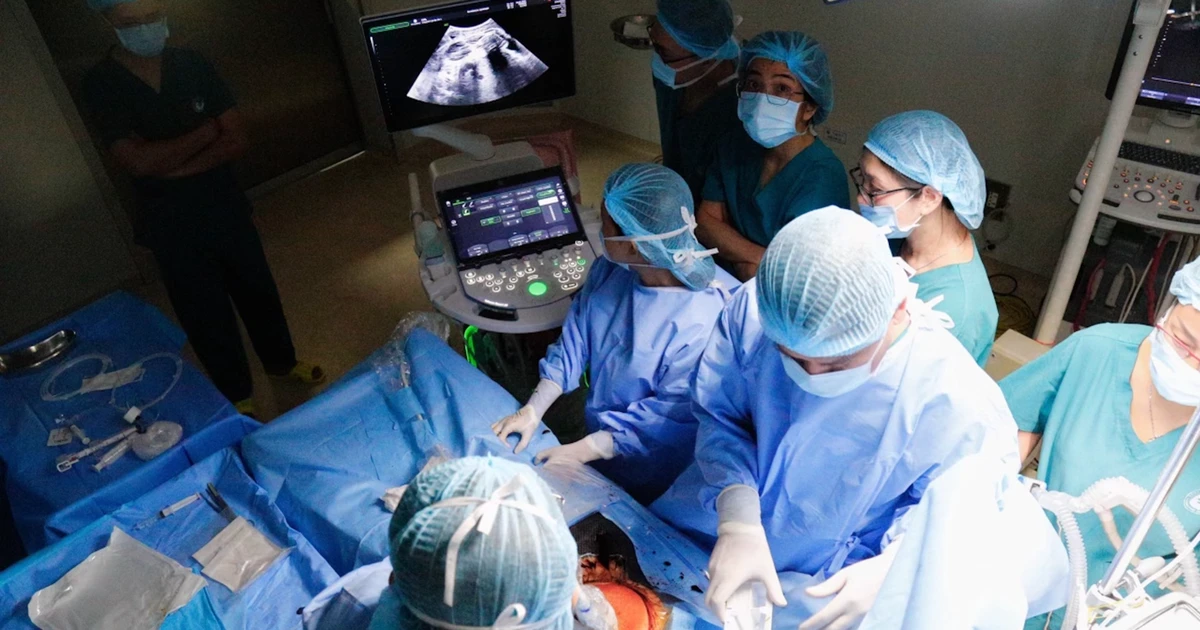








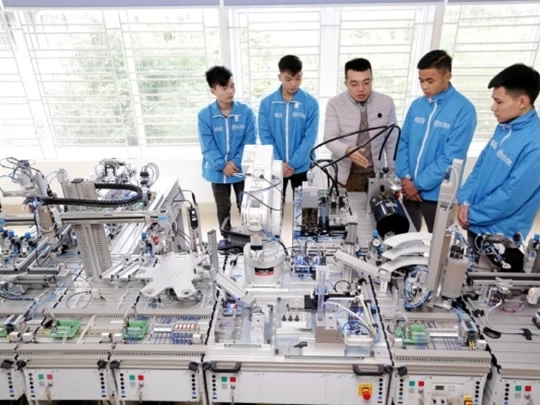
















![[Photo] Prime Minister Pham Minh Chinh chairs Government Conference with localities on economic growth](https://vstatic.vietnam.vn/vietnam/resource/IMAGE/2025/2/21/f34583484f2643a2a2b72168a0d64baa)



























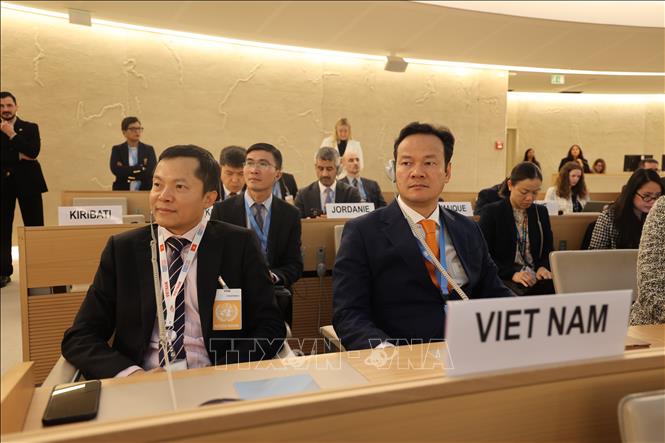































Comment (0)